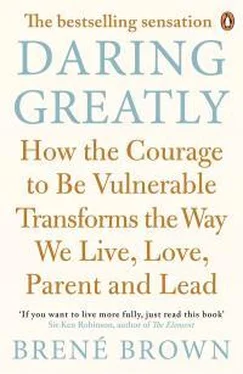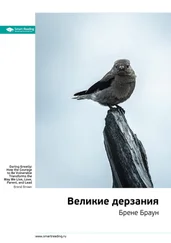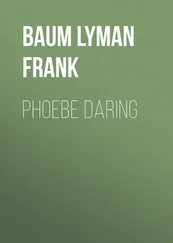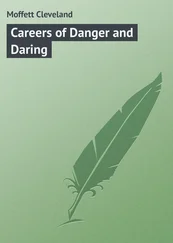At this point we were both teary-eyed. I reached up and did that awkward “are you a hugger?” gesture, then I gave him a big ol’ hug. After we let go of our this-stuff-is-hard-but-we-can-do-it embrace, he looked at me and said, “I’m pretty bad at vulnerability, but I’m really good at shame. Is getting past shame necessary for getting to vulnerability?”
“Yes. Shame resilience is key to embracing our vulnerability. We can’t let ourselves be seen if we’re terrified by what people might think. Often ‘not being good at vulnerability’ means that we’re damn good at shame.”
As I stumbled for better language to explain how shame stops us from being vulnerable and connected, I remembered my very favorite exchange from Harry Potter . “Do you remember when Harry was worried that he might be bad because he was angry all of the time and had dark feelings?”
He enthusiastically answered, “Yes! Of course! The conversation with Sirius Black! That’s the moral of the entire story.”
“Exactly! Sirius told Harry to listen to him very carefully, then he said, ‘You’re not a bad person. You’re a very good person who bad things have happened to. Besides, the world isn’t split into good people and Death Eaters. We’ve all got both light and dark inside us. What matters is the part we choose to act on. That’s who we really are.’ ”
“I get it,” he sighed.
“We all have shame. We all have good and bad, dark and light, inside of us. But if we don’t come to terms with our shame, our struggles, we start believing that there’s something wrong with us—that we’re bad, flawed, not good enough—and even worse, we start acting on those beliefs. If we want to be fully engaged, to be connected, we have to be vulnerable. In order to be vulnerable, we need to develop resilience to shame.”
At this point, his wife was waiting by the stage stairs. He thanked me, gave me another quick hug, and walked away. Just as he reached the bottom of the stairs, he turned back and said, “You may not be Snape, but you’re a damn good Defense Against the Dark Arts teacher!”
It was a conversation and a moment that I’ll never forget. On the way home that night, I thought about a line from one of the books where Harry Potter was detailing the fate of several unsuccessful Defense Against the Dark Arts teachers: “One sacked, one dead, one lost his memory, and one was locked in a trunk for nine months.” I remember thinking, “Sounds about right.”
I won’t go on with the Harry Potter metaphor because I’m sure there’s one or two of you out there who haven’t had the chance to read the books or see the films, but I have to say that J. K. Rowling’s incredible imagination has made teaching shame a lot easier and way more fun. The allegorical power of Harry Potter lends itself to talking about everything from the struggle between light and dark to the hero’s journey and why vulnerability and love are the truest marks of courage. Having spent so long trying to describe and define unnamed emotions and experiences, I find that Harry Potter has given me a treasure trove of characters, monsters, and images to use in my teaching. For that, I’ll be forever grateful.
I didn’t set out to become a wild-eyed shame evangelist or a Defense Against the Dark Arts teacher, but after spending the past decade studying the corrosive effect that shame has on how we live, love, parent, work, and lead, I’ve found myself practically screaming from the top of my lungs, “Yes, shame is tough to talk about. But the conversation isn’t nearly as dangerous as what we’re creating with our silence! We all experience shame. We’re all afraid to talk about it. And, the less we talk about it, the more we have it.”
We have to be vulnerable if we want more courage; if we want to dare greatly. But as I told my Harry Potter friend, how can we let ourselves be seen if shame has us terrified of what people might think?
Let me give you an example.
You’ve designed a product or written an article or created a piece of art that you want to share with a group of friends. Sharing something that you’ve created is a vulnerable but essential part of engaged and Wholehearted living. It’s the epitome of daring greatly. But because of how you were raised or how you approach the world, you’ve knowingly or unknowingly attached your self-worth to how your product or art is received. In simple terms, if they love it, you’re worthy; if they don’t, you’re worthless.
One of two things happens at this point in the process:
Once you realize that your self-worth is hitched to what you’ve produced or created, it’s unlikely that you’ll share it, or if you do, you’ll strip away a layer or two of the juiciest creativity and innovation to make the revealing less risky. There’s too much on the line to just put your wildest creations out there.
If you do share it in its most creative form and the reception doesn’t meet your expectations, you’re crushed. Your offering is no good and you’re no good. The chances of soliciting feedback, reengaging, and going back to the drawing board are slim. You shut down. Shame tells you that you shouldn’t have even tried. Shame tells you that you’re not good enough and you should have known better.
If you’re wondering what happens if you attach your self-worth to your art or your product and people love it, let me answer that from personal and professional experience. You’re in even deeper trouble. Everything shame needs to hijack and control your life is in place. You’ve handed over your self-worth to what people think. It’s panned out a couple of times, but now it feels a lot like Hotel California: You can check in, but you can never leave. You’re officially a prisoner of “pleasing, performing, and perfecting.”
With an awareness of shame and strong shame resilience skills, this scenario is completely different. You still want folks to like, respect, and even admire what you’ve created, but your self-worth is not on the table. You know that you are far more than a painting, an innovative idea, an effective pitch, a good sermon, or a high Amazon.com ranking. Yes, it will be disappointing and difficult if your friends or colleagues don’t share your enthusiasm, or if things don’t go well, but this effort is about what you do, not who you are. Regardless of the outcome, you’ve already dared greatly, and that’s totally aligned with your values; with who you want to be.
When our self-worth isn’t on the line, we are far more willing to be courageous and risk sharing our raw talents and gifts. From my research with families, schools, and organizations, it’s clear that shame-resilient cultures nurture folks who are much more open to soliciting, accepting, and incorporating feedback. These cultures also nurture engaged, tenacious people who expect to have to try and try again to get it right—people who are much more willing to get innovative and creative in their efforts.
A sense of worthiness inspires us to be vulnerable, share openly, and persevere. Shame keeps us small, resentful, and afraid. In shame-prone cultures, where parents, leaders, and administrators consciously or unconsciously encourage people to connect their self-worth to what they produce, I see disengagement, blame, gossip, stagnation, favoritism, and a total dearth of creativity and innovation.
Peter Sheahan is an author, speaker, and CEO of ChangeLabs™, a global consultancy building and delivering large-scale behavioral change projects for clients such as Apple and IBM. Pete and I had the chance to work together last summer and I think his perspective on shame is spot on. Pete says,
The secret killer of innovation is shame. You can’t measure it, but it is there. Every time someone holds back on a new idea, fails to give their manager much needed feedback, and is afraid to speak up in front of a client you can be sure shame played a part. That deep fear we all have of being wrong, of being belittled and of feeling less than, is what stops us taking the very risks required to move our companies forward.
Читать дальше






![Брене Браун - Вопреки. Как оставаться собой, когда всё против тебя [litres]](/books/436389/brene-braun-vopreki-kak-ostavatsya-soboj-kogda-v-thumb.webp)





